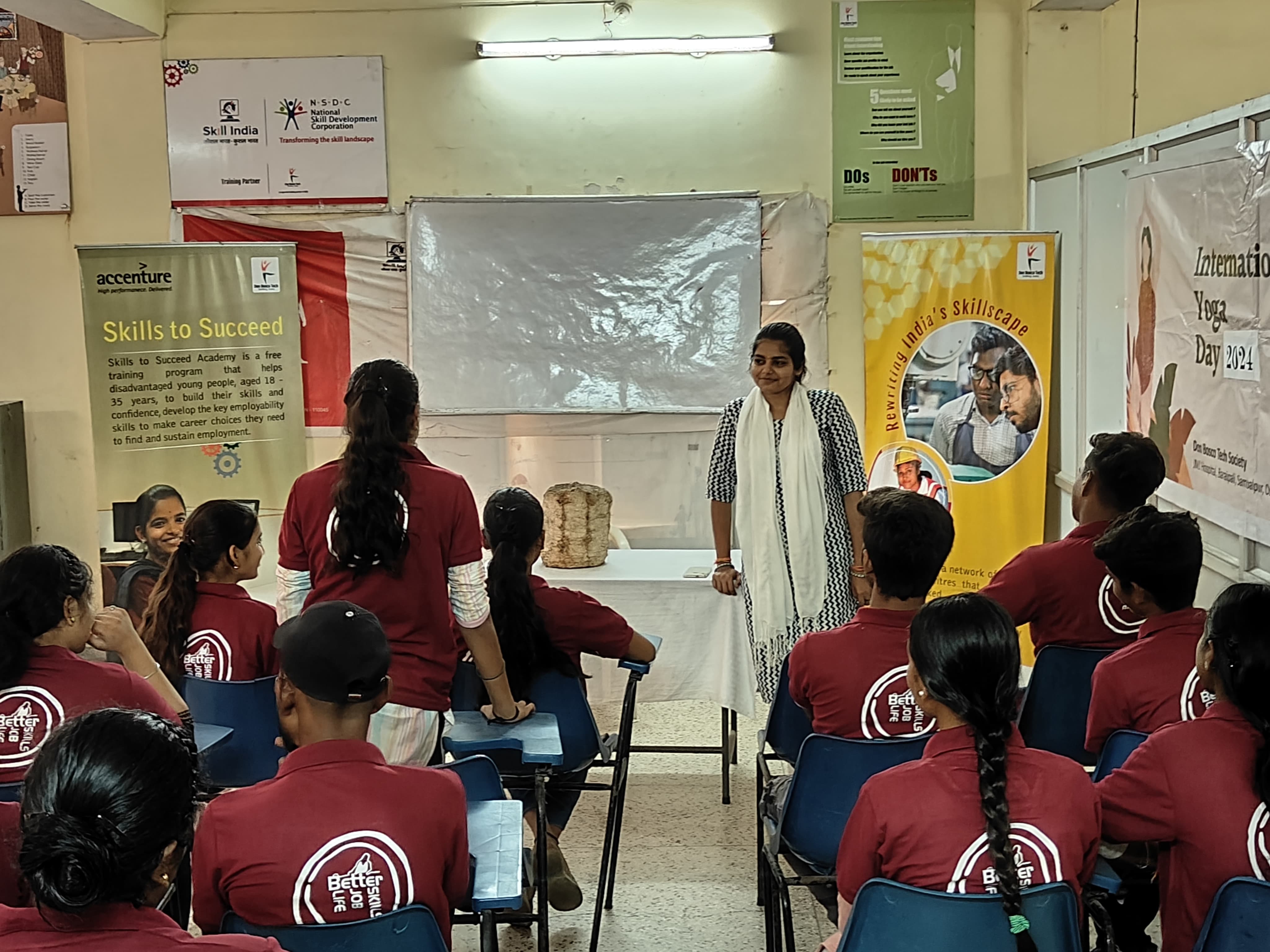Guest Lecture Session for Mushroom Grower Job Role, Batch - 01 of Skills to Succeed 2024-25
25 Sep 2023

Don Bosco Tech - Sambalpur Center hosted an exhilarating guest lecture session for the Mushroom Grower (Batch-1, Skills to Succeed 2024-25) job role on June 25, 2024. The session was a captivating dive into the "Production of various types of mushrooms in India," starting with a warm welcome address by the domain trainer, Mr. Dillip Kumar Behera. He introduced and welcomed the esteemed guest lecturer, Ms. Nirupama Singh from AB Mushroom Farm.
Ms. Nirupama began with an engaging overview of the diverse types of mushrooms grown in India, shedding light on their seasonal varieties and the myriad factors influencing their growth. She highlighted the commercial importance of three main types of mushrooms: oyster mushrooms, paddy straw mushrooms, and button mushrooms. Each variety, she explained, is cultivated through unique techniques, making mushroom farming a field ripe with opportunity and innovation.
The lecture turned particularly riveting when Ms. Nirupama delved into the specifics of paddy straw mushroom cultivation. She emphasized the cost-effectiveness and high profitability of growing paddy straw mushrooms, making it an ideal venture for small-scale farms. Attendees were fascinated as she described the meticulous steps of spawning, bed preparation, and mushrooming, stressing the freshness and delicate nature of these mushrooms.
Throughout the session, Ms. Nirupama infused her talk with practical insights and tips, addressing the common challenges and solutions in mushroom farming. She passionately spoke about the immense potential for self-employment in this field, inspiring trainees with stories of successful mushroom growers who have built sustainable livelihoods. Her practical advice on preventing spillage and maximizing yield was met with enthusiastic nods and eager note-taking.
The energy in the room was palpable as trainees posed thoughtful questions about building a career in mushroom cultivation. Ms. Nirupama's responses were not only informative but also motivational, encouraging attendees to see the vast possibilities in mushroom farming. Her tips on starting small and scaling up, along with anecdotes from her own experiences, made the session a treasure trove of new-found knowledge and innovative ideas.
As the session drew to a close, the trainees' enthusiasm was unmistakable. Ms. Nirupama expressed her admiration for their keen participation and interest. The event concluded with Mr. Sarada Prasad Nanda extending a heartfelt vote of thanks to Ms. Nirupama for her enlightening and inspiring lecture. The trainees left with a renewed sense of excitement and a wealth of knowledge, ready to explore the promising field of mushroom cultivation.